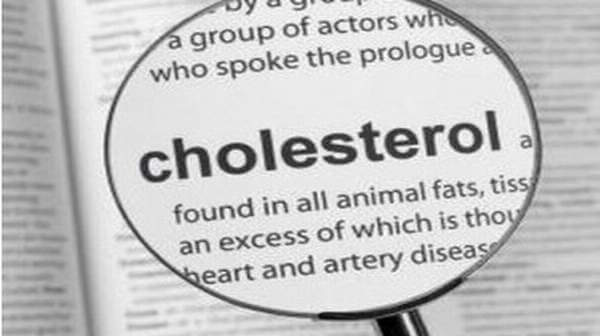What's in this article?
High blood Cholesterol?
To understand high blood cholesterol (ko-LES-ter-ol), it helps to learn about cholesterol.
Your body needs some cholesterol to make hormones, vitamin D, and substances that help you digest foods. Your body makes all the cholesterol it needs.

Cholesterol travels through your bloodstream in small packages called lipoproteins (lip-o-PRO-teens). These packages are made of fat (lipid) on the inside and proteins on the outside.
Two kinds of lipoproteins carry cholesterol throughout your body: low-density lipoproteins (LDL) and high-density lipoproteins (HDL). Having healthy levels of both types of lipoproteins is important.
LDL cholesterol sometimes is called “bad” cholesterol. A high LDL level leads to a buildup of cholesterol in your arteries. (Arteries are blood vessels that carry blood from your heart to your body.)
HDL cholesterol sometimes is called “good” cholesterol. This is because it carries cholesterol from other parts of your body back to your liver. Your liver removes the cholesterol from your body.
About Cholesterol
Cholesterol itself isn’t bad. We all have and need this wax-like substance in our bodies. Learn about the so-called “good” and “bad”, where it comes from, and why it’s important for your health.
What is cholesterol and where does it come from?
Cholesterol is a waxy substance that comes from two sources: your body and food. Your body, and especially your liver, makes all the cholesterol you need and circulates it through the blood. But cholesterol is also found in foods from animal sources, such as meat, poultry and full-fat dairy products. Your liver produces more cholesterol when you eat a diet high in saturated and trans fats.

Excess cholesterol can form plaque between layers of artery walls, making it harder for your heart to circulate blood. Plaque can break open and cause blood clots. If a clot blocks an artery that feeds the brain, it causes a stroke. If it blocks an artery that feeds the heart, it causes a heart attack.
What is High Blood Cholesterol?
High blood cholesterol is a condition in which you have too much cholesterol in your blood. By itself, the condition usually has no signs or symptoms. Thus, many people don’t know that their cholesterol levels are too high.
People who have high blood cholesterol have a greater chance of getting coronary heart disease, also called coronary artery disease. (In this article, the term “heart disease” refers to coronary heart disease.)
The higher the level of LDL cholesterol in your blood, the GREATER your chance is of getting heart disease. The higher the level of HDL cholesterol in your blood, the LOWER your chance is of getting heart disease.
Coronary heart disease is a condition in which plaque (plak) builds up inside the coronary (heart) arteries. Plaque is made up of cholesterol, fat, calcium, and other substances found in the blood. When plaque builds up in the arteries, the condition is called atherosclerosis (ATH-er-o-skler-O-sis).
Over time, plaque hardens and narrows your coronary arteries. This limits the flow of oxygen-rich blood to the heart.
Eventually, an area of plaque can rupture (break open). This causes a blood clot to form on the surface of the plaque. If the clot becomes large enough, it can mostly or completely block blood flow through a coronary artery.
If the flow of oxygen-rich blood to your heart muscle is reduced or blocked, angina (an-JI-nuh or AN-juh-nuh) or a heart attack may occur.
Angina is chest pain or discomfort. It may feel like pressure or squeezing in your chest. The pain also may occur in your shoulders, arms, neck, jaw, or back. Angina pain may even feel like indigestion.

A heart attack occurs if the flow of oxygen-rich blood to a section of heart muscle is cut off. If blood flow isn’t restored quickly, the section of heart muscle begins to die. Without quick treatment, a heart attack can lead to serious problems or death.
Plaque also can build up in other arteries in your body, such as the arteries that bring oxygen-rich blood to your brain and limbs. This can lead to problems such as carotid artery disease, stroke, and peripheral arterial disease (P.A.D.).






